No High-Level Meeting Held In Iran Over EU’s Proposals To Save JCPOA
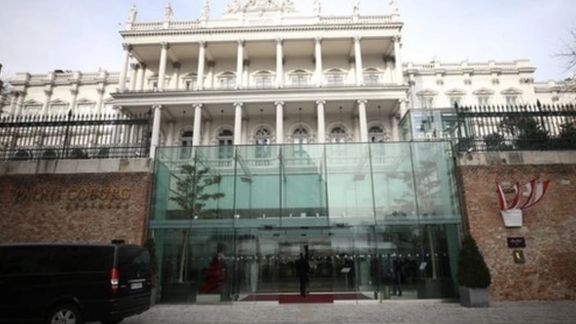
Iran's Supreme National Security Council says no high-level meeting has yet been held regarding the EU-proposed "final text" to revive the 2015 nuclear deal.

Iran's Supreme National Security Council says no high-level meeting has yet been held regarding the EU-proposed "final text" to revive the 2015 nuclear deal.
In a report on Wednesday, Nour News, a website affiliated with the secretary of Iran's Supreme National Security Council (SNSC), Ali Shamkhani, said since Tehran’s lead negotiator Ali Bagheri-Kani and his team returned from Vienna "the process of examining the ideas proposed by the European Union coordinator has started at the expert level and is still continuing."
No high-level meeting has yet been held to review the EU’s ideas in Tehran, and according to the usual procedure, after the completion of the expert review process, the preliminary results will be presented to the relevant decision-making bodies for a final decision, the report said.
On Monday, August 8, Iran’s Foreign Minister Hossein Amir-Abdollahian and the European Union foreign policy chief Josep Borrell discussed the latest round of Vienna nuclear talks, reiterating that all parties involved in the talks must take serious steps toward reaching the final text of an agreement.
Iran insists that the text offered for renewing the 2015 nuclear deal is not a final agreement but European officials described the document to journalists as a ‘take it or leave it’ offer for both sides.
Tehran demanded more drastic concessions outside the scope of the original agreement, including the closure an International Atomic Energy Agency probe into undeclared nuclear material found in three undisclosed sites.
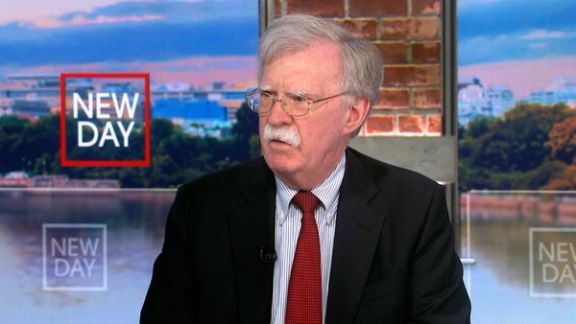
While Iran rejected US accusations of a plot to kill former National Security Adviser John Bolton, the threat to US citizens can have an impact on nuclear talks.
Bolton told Iran International that there are several American public figures who face direct threats. Axios reported Wednesday that US law enforcement have also told former Secretary of State Mike Pompeo that he is a possible target of an Iran plot.
In its denial issued immediately after an indictment was unsealed by the Department of Justice against a member of Iran’s Revolutionary Guard, Tehran accused Washington of “weaving a tale” to exert pressure in the nuclear talks.
But as the news of a serious and real threat against former and possibly current US officials sinks in, critics of reviving the 2015 nuclear deal (JCPOA) with Iran are bound to ask the Biden administration not to continue negotiations with Tehran.
Bolton himself warned in a statement on Wednesday, “Iran’s nuclear-weapons and terrorist activities are two sides of the same coin. No responsible US government should think otherwise. America re-entering the failed 2015 Iran nuclear deal would be an unparalleled self-inflicted wound…I remain committed to making sure it does not happen.”
At the same time, current national security adviser Jake Sullivan issued a statement from the White House saying, “Should Iran attack any of our citizens, to include those who continue to serve the United States or those who formerly served, Iran will face severe consequences. We will continue to bring to bear the full resources of the U.S. Government to protect Americans.”
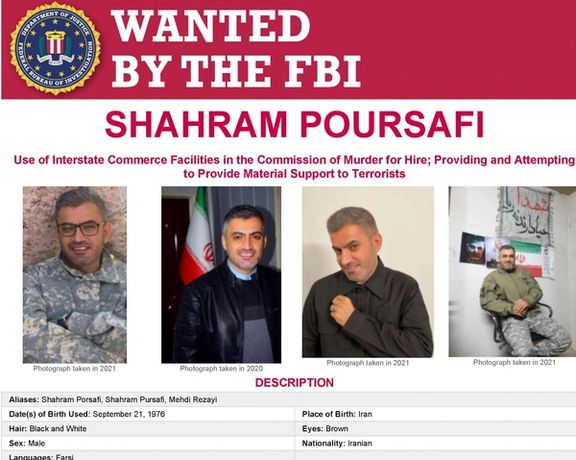
But the DOJ clearly says Iran tried to kill Bolton and many would say this is enough reason for “severe consequences”. However, Reuters quoted an unnamed US official as saying that Washington does not believe the assassination plots should affect talks the JCPOA talks with Tehran.
Republican Senator Marco Rubio tweeted, "Why is Biden still negotiating with Iran on a new “deal” when he knows they are actively trying to assassinate former government officials on U.S. soil?"
Norman Roule, a long-time senior Central Intelligence Agency official and an expert on the Middle East tweeted that the plot against Bolton “was almost certainly approved by the senior-most leadership of Iran & undertaken only after a determination that its exposure would not invite a significant response.” He added that “Iran will likely continue these operations absent swift and meaningful international actions. The failure to demonstrate deterrence risks Iran undertaking an operation that, if successful, could ignite a regional conflict.”
Kylie Moore-Gilbert an Australian-British academic who was a hostage in Iran tweeted, “Not sure how the US can claim its negotiating with Iran in good faith over a seemingly-mythical JCPOA at quite literally the same time that Iran is funding multiple terror plots that aim to assassinate US citizens on US soil.”
After 16 months of negotiations to revive the JCPOA, Iran is still considering a draft submitted by the European Union that coordinates the talks. US has said it is ready to lift the crucial economic sanctions if Iran agrees to return to the limitations set by the 2015 agreement, but Tehran wants more sanctions to be lifted.
One group of sanctions are those imposed on the IRGC and its affiliated entities for involvement in terrorism, which now seem impossible for the administration to agree to, given the DoJ indictments of an IRGC member.
A former State Department official, Gabriel Noronha, who opposes the JCPOA tweeted, “So again today, we saw Jake Sullivan with another stern warning to Iran, that only threatens consequences ONCE Iran attacks a US citizen. There would be no measures taken beforehand, just afterwards when Bolton/Pompeo are dead. This is Russia/Ukraine all over again.”
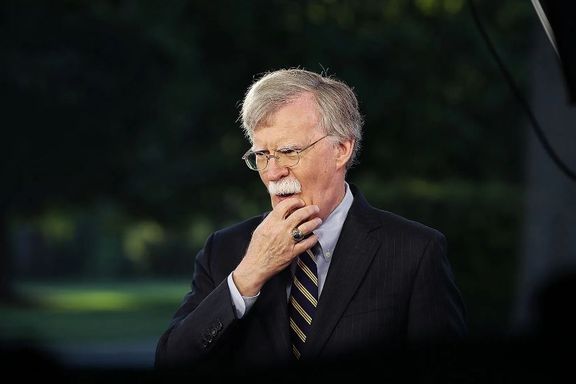
The US is not doing enough to stop the Iranian threat against former officials, John Bolton who was the target of an assassination plot told Iran International.
The Justice Department revealed on Wednesday that an operative of Iran’s Revolutionary Guard tried to hire a hitman in the US to kill former National Security Adviser John Bolton.
A statement by DoJ saidShahram Poursafi, also known as Mehdi Rezayi, 45, had attempted to pay “individuals in the United States” $300,000 to carry out the killing, “likely in retaliation for the January 2020 death of Iran’s Islamic Revolutionary Guard Corps – Qods Force (IRGC-QF) commander Qasem Soleimani.”
Bolton told Iran International Television anchor Fardad Farahzad that he was not surprised as an indictment was unsealed because he was kept informed “in general terms until late in 2021 when it was determined I would again get secret service protection.”
As the news about the assassination plot against Bolton was announced, Axios reported that DOJ also told former Secretary of State Mike Pompeo that he too was one of the former Trump officials targeted by the government of Iran.
After the US targeted killing of Iran’s Qasem Soleimani in January 2020 in Baghdad, Iran’s top leaders have repeatedly threatened revenge against Trump administration officials, including President Donald Trump himself.
Bolton said that he is aware of many ex-officials being the target of possible Iranian plots. “So, it's a very real threat, and obviously we're not doing enough to stop it because it continues,” he said, adding, “I really can't discuss names, but this is something that characterizes the regime in Tehran, and obviously the US has not done enough to deter the regime.”
Critics of the Biden administration say that with this kind behavior by Iran, the United States should stop making deals with Tehran and promising to lift sanctions that would give the Iranian government tens of billions of dollars in cash and economic benefits.
However, Reuters quoted an unnamed US official as saying that Washington does not believe the assassination plots should affect talks with Tehran on reviving the 2015 nuclear deal, known as the JCPOA.
Asked if he thinks the issue of Iranian threats to US citizens should be raised in the JCPOA talks, Bolton said, “I think that was really part of the fundamental flaw of the 2015 nuclear deal, the idea that the Ayatollah Khamenei had two brains: one brain was the nuclear brain, the other brain was the terrorist brain. He doesn't. It's all part and parcel of the same thing. So fundamentally the nuclear deal was not going to deal with the terrorist issue.”
Bolton went on to say that “In fact, what we see now is that this regime has no intention whatever to comply with any commitments that it makes. It's untrustworthy, it's clearly an enemy of the US. That's what these threats of assassination show.”
Asked if from the benefit of hindsight, he would still support Soleimani’s killing, the former national security adviser said, “Soleimani was a terrorist,” and argued that the Islamic Republic has been threatening and killing Americans since its establishment in 1979, not just after Soleimani’s killing.
“So yes, their threat has been growing, but it's been growing for a long period of time. This is a dangerous, untrustworthy regime.”
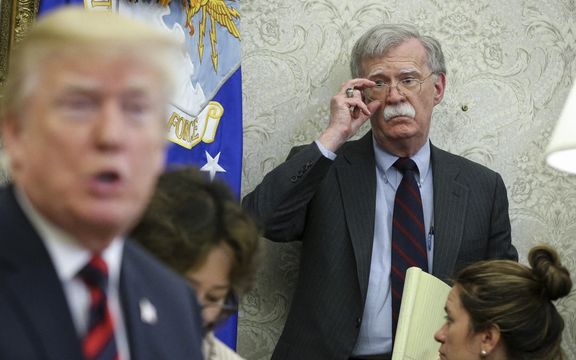
A member of Iranian Revolutionary Guard was charged Wednesday with planning to assassinate John Bolton, the former United States National Security Advisor.
A statement from the US Justice Department alleged Shahram Poursafi, also known as Mehdi Rezayi, 45, had attempted to pay “individuals in the United States” $300,000 to carry out the killing, “likely in retaliation for the January 2020 death of Iran’s Islamic Revolutionary Guard Corps – Qods Force (IRGC-QF) commander Qasem Soleimani.”
Bolton was National Security Advisor April 2018-September 2019 and was not in the post when President Donald Trump authorized the drone strike in Baghdad in which Soleimani and nine others died. The United Nations special rapporteur judged Soleimani’s death “unlawful killing.”
The Justice Department statement cited court documents suggesting Poursafi launched a plan to kill Bolton, either in Washington, the District of Columbia, or Maryland in October 2021 by asking an unnamed individual – whom he met online – to take photographs of Bolton, ostensibly for a book Poursafi was writing. The individual concerned introduced Poursafi to a second person whom he offered $250,000, later increased to $300,00, to eliminate the ex-presidential advisor.

This second person, identified by the Justice Department statement as a “source” for the criminal investigation, was told by Poursafi there was an additional “job” for which he would be paid $1 million. During communications, the statement said, the source referred several times to Poursafi being “associated with IRGC-QF,” which it said Poursafi never denied.
According to the statement, Poursafi then provided the source with Bolton’s work address. The statement did not explain why the alleged plot, which was investigated by the Federal Bureau of Investigation (FBI) Washington Field Office, was never carried out, nor whether Poursafi had conducted the whole scheme virtually without even entering the US.
Poursafi ‘at large abroad’
“If convicted, Poursafi faces up to 10 years imprisonment and a fine up to $250,000 for the use of interstate commerce facilities in the commission of murder for hire, and up to 15 years imprisonment and a fine up to $250,000 for providing and attempting to provide material support to a transnational murder plot,” the Justice Department statement noted. It added that Pousafi “remains at large abroad.”
The Washington Examiner in March alleged that the Biden administration had blocked the Justice Department from taking action over an Iranian plot to kill Bolton in order not to derail Vienna talks aimed at reviving the 2015 Iran nuclear deal, the JCPOA (Joint Comprehensive Plan of Action). The State Department January informed Congress there was a “specific threat” from Iran against Brian Hook, Trump’s special Iran envoy at the time Soleimani was killed.
Earlier this month, women’s rights activist Masih Alinejad was told by the FBI that a man arrested near her Brooklyn home with an assault rifle had been sent by Iran to kill her. Alinejad, who became a successful author and doyen of US-funded media since leaving Iran 2009, was the target last year of a kidnap plot that remains a live criminal case with defendant Niloufar Bahadorifar still to face court after her arrest in July 2021.
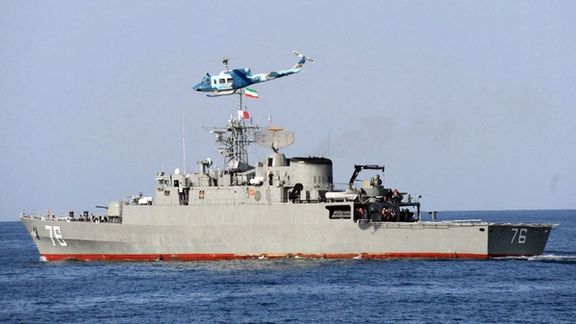
A senior Iranian commander claimed on Wednesday that the country’s naval forces thwarted an overnight pirate attack on one of the country’s merchant vessels in the Red Sea.
Iranian Navy's deputy head of operations, Rear Admiral Mostafa Tajeddini, said the escort flotilla of the army's naval unit, led by the Jamaran destroyer, responded to a distress call from an Iranian ship in the Red Sea, and fended off the attacking boats after a heavy exchange of fire.
“Thanks to the effective [naval] presence and after heavy exchanges, the attacking boats made off,” the senior commander noted, but stopped short of providing details of the ship that was targeted or the forces that launched the overnight attack.
In November 2021, Iran said pirates attempted to seize an Iranian oil tanker in the Gulf of Aden, two weeks after an Iranian warship repelled an attack by pirates against two oil tankers that it was escorting in the Gulf of Aden.
Iran stepped up its naval presence in the Gulf of Aden after a wave of attacks by Somalia-based pirates between 2000 and 2011 to increase security of its ships through the Red Sea and Suez Canal.
In July, Iran-backed Houthis of Yemen said Sana’a will not allow the Red Sea to become an “Israeli lake,” noting that Yemen has the final say in the Bab al-Mandab strait and will “preserve the Arab identity of the Red Sea in the face of the US conspiracy to turn it into a Zionist lake."
Israel’s defense minister Benny Gantz said earlier in July that Iran is expanding its aggressive operations in the region in general, and in the naval arena in particular.
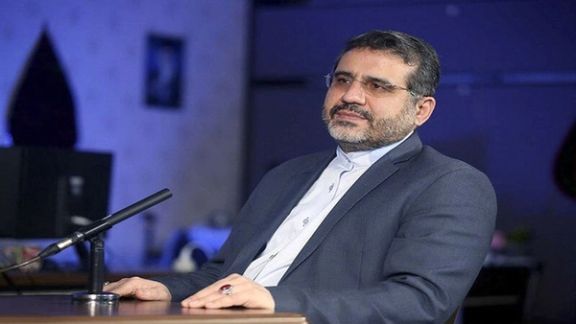
Iran’s Minister of Culture and Islamic Guidance said Wednesday that screening Iranian movies in Israel is forbidden and should not be violated.
“We have told all those who are working inside Iran that film screening in Israel is a redline for the Islamic Republic and we will certainly punish those who screen their films there,” Mohammad-Mehdi Esmaili said.
“We have no tolerance” regarding this issue, he said, warning all producers and filmmakers to be careful that such screenings do not happen.
He also thanked producers and filmmakers who stopped the screening of their films “in the occupied territories” as soon as they found out that their sponsors plan to release their movies there.
Esmaili did not elaborate on how the filmmakers are going to stop international distribution companies – who are actually responsible for marketing a film – from screening the movies in Israel.
In the latest case -- at the Jerusalem Film Festival that was held in July -- several films by Iranian directors such as Asghar Farhadi, Paris-based Mitra Farahani and Ali Abbasi, whose movie Holy Spider won the best actress award at 2022 Cannes Film Festival -- were screened, but the film "Tomorrow" by Ali Asgari was withdrawn from the festival after pressure from the Islamic Republic’s authorities.
The Islamic Republic does not recognize Israel and even forbids its athletes from facing Israeli competitors in international sports, making numerous Iranian champions leave the country or defect to other national teams.